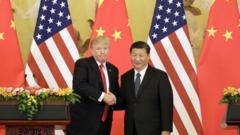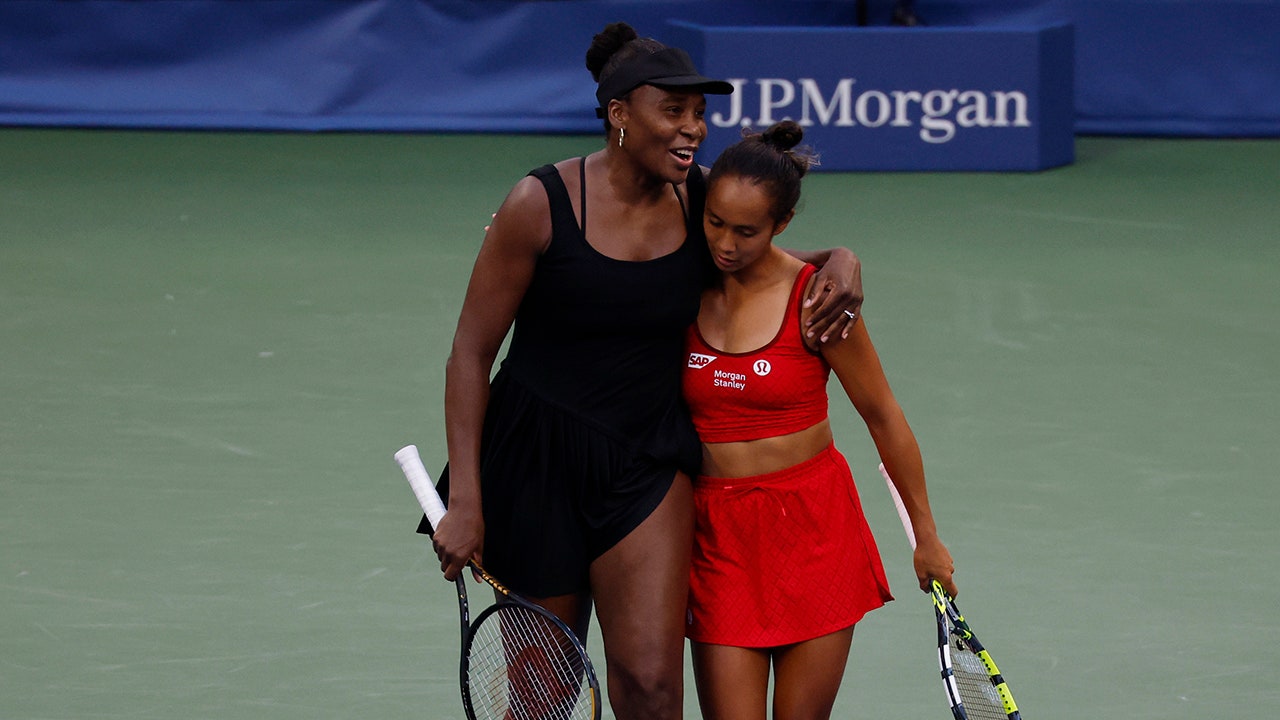Is China Really a Challenge to the US on the World Stage? Trump Thinks Not!

Published: 2025-09-02 21:54:10 | Category: world
In a recent statement, Donald Trump dismissed concerns regarding the warming relations between China, Russia, and their allies, asserting that the United States remains unchallenged on the global stage. He emphasized his strong rapport with Chinese President Xi Jinping, claiming that China relies on the US more than vice versa. This comes as Xi prepares to host a significant military parade, showcasing China's might and signalling solidarity with allies like North Korea and Russia amidst ongoing geopolitical tensions.
Last updated: 02 October 2023 (BST)
Key Takeaways
- Trump maintains that China needs the US more than the opposite.
- Xi Jinping's military parade is set to demonstrate China's strength.
- Concerns about a Sino-Russian coalition are dismissed by Trump.
- Trump expressed disappointment in Putin over the lack of peace talks for Ukraine.
- China is accused of supporting Russia's military efforts in Ukraine.
Trump’s Stance on China and Russia
Donald Trump's recent remarks in the Oval Office indicate a confident posture regarding the US's position in global affairs. He rejected suggestions that the burgeoning relationship between China and Russia poses a threat, stating, "China needs us more than we need them." This assertion aligns with his broader narrative of American exceptionalism, particularly in the face of international alliances that might appear challenging.
Context of the Relationship
During his presidency, Trump implemented tariffs aimed at protecting American industries, which many saw as a direct attack on China's economic practices. The tariffs disrupted the global economic order, positioning China as a potential counterweight to US influence. However, Trump suggests that despite these tensions, his personal relationship with Xi Jinping remains strong, which he believes is indicative of a stable US-China dynamic.
The "Victory Day" Parade in Beijing
On Wednesday, Xi Jinping is set to host a "Victory Day" parade in Beijing, commemorating China's military achievements. This event is anticipated to be a display of military prowess and a demonstration of unity with allies such as North Korea's Kim Jong Un and Russia's Vladimir Putin. Analysts interpret this parade as a strategic move to project strength and counter Western narratives of isolation.
Implications of the Parade
The presence of leaders like Kim and Putin at the parade signifies a deepening alliance among countries that often find themselves at odds with Western policies. This gathering sends a message of solidarity and defiance against perceived Western hegemony. The parade also serves as a reminder of China's growing military capabilities, which are being scrutinised by defence analysts worldwide.
Trump’s Confidence in US Military Strength
In a radio interview, Trump expressed his unwavering confidence in the US military, stating, "We have the most powerful military forces in the world." He downplayed the potential for military conflict with China and Russia, asserting that such actions would be detrimental to both countries. Trump's rhetoric suggests a belief that the US's military dominance is sufficient to deter any aggressive actions from its adversaries.
Strategic Military Posture
Trump's claims regarding military strength highlight a critical aspect of US foreign policy: the reliance on military might as a deterrent. With ongoing military developments in both China and Russia, this stance raises questions about the effectiveness of deterrence in contemporary geopolitics. The history of military engagements suggests that overconfidence can lead to miscalculations that have severe consequences.
Reactions to the Russia-Ukraine Conflict
In discussing the Russia-Ukraine situation, Trump conveyed disappointment in Putin for failing to achieve a peace deal during their last encounter. His comments reflect a broader frustration with the ongoing conflict, which has resulted in humanitarian crises and geopolitical instability. Trump emphasized the US's intention to support Ukraine but did not elaborate on specific measures.
China’s Role in the Ukraine Conflict
China's position regarding Russia's military actions in Ukraine has drawn scrutiny. While China has not publicly condemned the invasion, it has been accused of providing support to Russia through various means, including the procurement of dual-use materials and oil purchases. This perceived complicity complicates China's diplomatic narrative as a peace broker in international relations.
Current Developments on the Frontline
Meanwhile, Ukrainian President Volodymyr Zelensky has reported a new troop build-up by Russia along specific sectors of the frontline. His nightly addresses indicate a persistent tension and ongoing military engagements. Zelensky's statements underscore the fragility of the situation, suggesting that peace remains elusive and that Russia continues to engage in aggressive military posturing.
Outlook for Ukraine
The continuation of hostilities in Ukraine poses significant challenges not only for the region but also for global stability. The international community watches closely as developments unfold, with potential implications for US foreign policy and its relationships with both allies and adversaries. The dynamic between Trump’s statements and the realities on the ground in Ukraine will likely shape future diplomatic efforts.
Conclusion: The Future of US-China-Russia Relations
As the geopolitical landscape evolves, the interactions between the US, China, and Russia will be pivotal. Trump's dismissal of concerns regarding a Sino-Russian coalition may resonate with some, but it overlooks the complexities of international relations. The upcoming military showcase in Beijing and the ongoing conflict in Ukraine will serve as crucial indicators of how these relationships will develop in the near future. The balance of power is delicate, and the interplay between military strength and diplomatic efforts will shape the global order for years to come.
FAQs
What is the significance of the "Victory Day" parade in China?
The "Victory Day" parade in China is significant as it showcases China's military capabilities and serves as a demonstration of solidarity with its allies, particularly amid tensions with Western nations.
How does Trump view the relationship between the US and China?
Trump views the US-China relationship as one where China relies more on the US than vice versa, believing that the US's military strength deters any potential threats from China.
What role is China playing in the Russia-Ukraine conflict?
China has not condemned Russia's actions in Ukraine and is accused of supporting Russia through the supply of resources, complicating its position as a potential mediator in the conflict.
What was Trump's reaction to Putin's actions regarding Ukraine?
Trump expressed disappointment in Putin for failing to reach a peace agreement during their meetings, indicating frustration over the ongoing conflict and its humanitarian impacts.
How has the US military presence influenced global relations?
The US military presence is viewed as a deterrent against potential aggression from adversaries like China and Russia, influencing diplomatic relations and discussions on international security.


